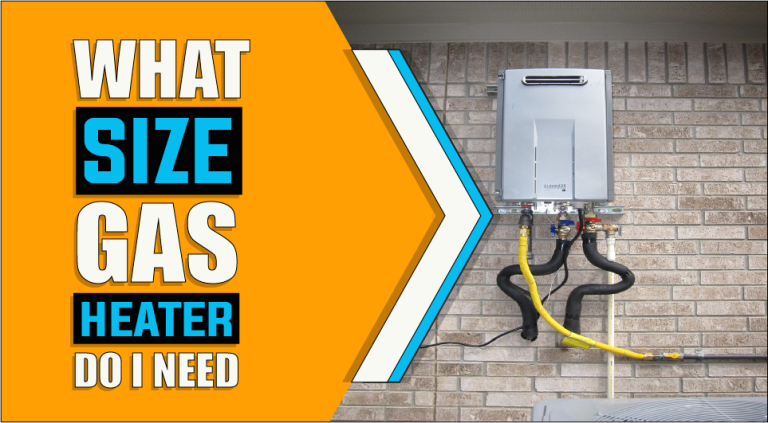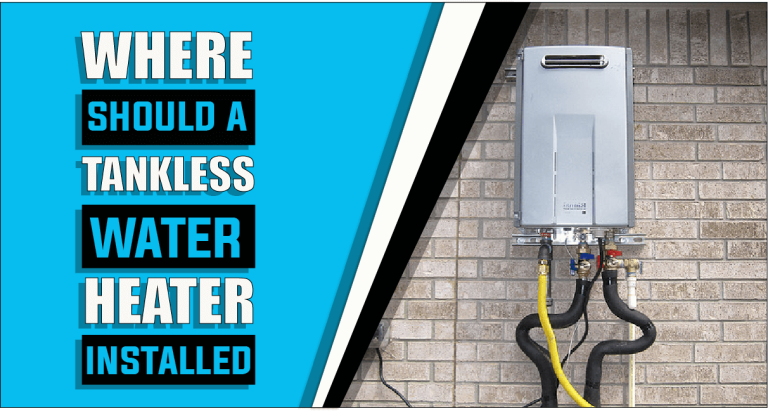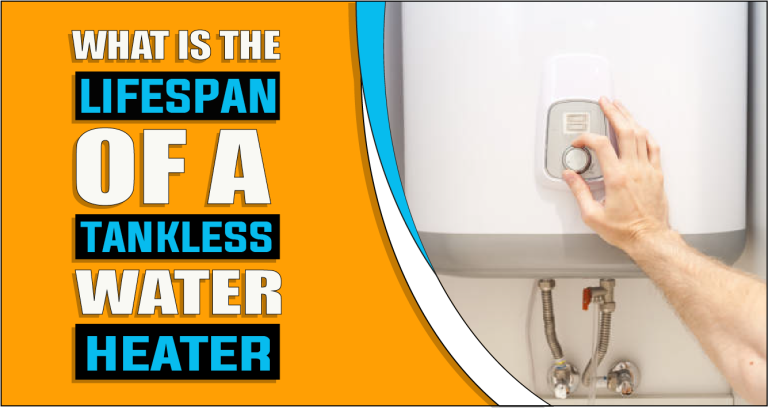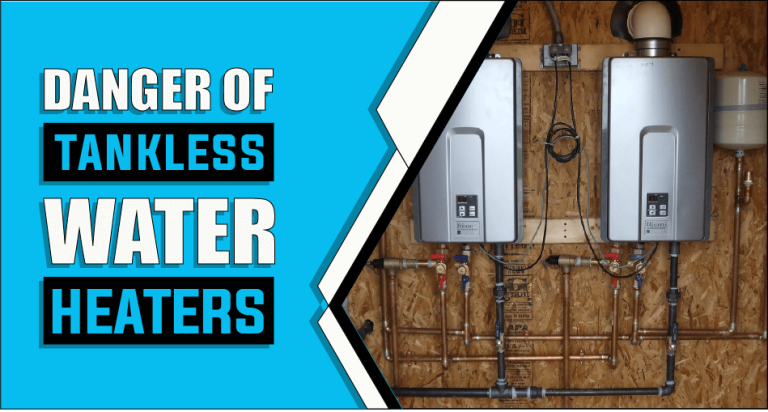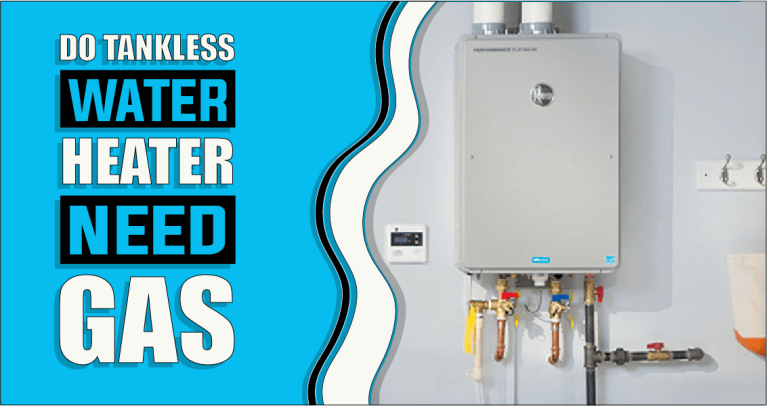Do Tankless Water Heaters Use More Electricity – The Truth Reveals
Are you looking for an environmentally friendly way to provide hot water on demand for your entire home? Consider a tankless water heater! Tankless heaters are becoming increasingly popular because they save money and space while providing reliable hot water with minimal energy use. With the advancements in modern technology, these heaters have become an efficient option for those who want the convenience of having hot water instantly. Are you interested in learning more about tankless water heaters? One of the questions we often get asked is: do tankless water heaters use more electricity? We want to answer this question and help equip you with the best information when making your decision. So let’s take a deeper look into how much energy these popular appliances demand.
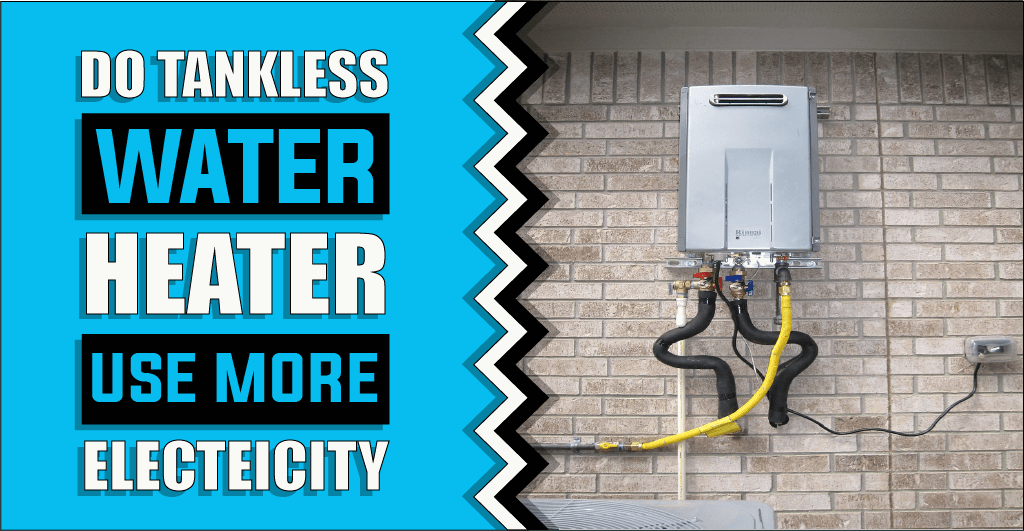
Let’s explore do tankless water heaters use more electricity?
Tankless water heaters can be a great way to save energy and money in the long run. However, there is some confusion over whether or not tankless water heaters use more electricity than traditional tank-style water heaters.
The short answer is no, tankless water heaters do not use more electricity than a traditional tank-style water heater. They can save you money in the long run by eliminating the need to keep a large tank of hot water heated all the time.
When it comes to energy consumption, a tankless water heater is more efficient because it only heats the water when it is needed. This means that instead of constantly reheating a large tank of hot water, the tankless unit only heats small amounts of water as and when required. This results in much less energy being used overall.
Tankless water heaters are also capable of providing hot water faster than traditional tanks since they don’t rely on storing hot water in a tank. This means that there is less wait time for hot water and this can save you time between tasks, such as washing dishes or taking a shower.
Although tankless water heaters are generally more efficient than traditional tanks, it is important to note that the size of the unit will affect how much electricity it uses. For example, if the tankless unit is too small for your needs then it could use more electricity than a larger unit. It’s important to select the right size and model of tankless water heater to match your needs to get the most out of it.
Overall, tankless water heaters are a great way to save energy and money in the long run. They are more efficient than traditional tank-style water heaters, provide hot water faster, and can be used to save time on tasks like washing dishes or showering. Just remember to select the right size and model of tankless heater for your needs to get the most out of it.
How Much Electricity Does A Tankless Water Heater Use?
A tankless water heater is an efficient and effective way to heat water for a variety of purposes. These units do not rely on the constant use of energy to keep a large amount of heated water in reserve, unlike traditional tank water heaters. Instead, they only use electricity when hot water is needed, eliminating wasted energy from constantly heating and reheating reserves of stored water.
Tankless water heaters are designed to be much more efficient. While the exact amount of wattage used will vary with the size and capacity of the unit, most units use between 20 kW and 35 kW per hour. This means that a typical household that uses 40 gallons per day can save around $30-$50 depending on their electricity rates. Over a year, this could add up to an average savings of about $1,000 for the same household by switching from a conventional heater to a tankless water heater.
Let’s discuss the cost of electricity per Day, Month, and Year
There are several factors such as location, size of household, climate, and even showerhead flow rate that play a part in determining how much electricity a tankless water heater will consume each day, month, or year.
Per Day
An electric tankless water heater consumes 20 kilowatts (KW) of electricity per day which costs about $0.27 to $0.94 per day.
Per Month
Per month electricity consumption of an electric heating unit is 920 kW which costs almost $89.60.
Per Year
An electric tankless water heater approximately consumes 23,040 kW per year which costs over $1,073 yearly.
This number can range higher depending on the usage pattern of hot water throughout the day. For example, if multiple people are taking showers in the morning, this can result in higher energy consumption.
Factors Affecting Electricity Consumption of Tankless Water Heaters
Tankless Water Heater is the best economical way to heat your home’s water without sacrificing performance and comfort. However, the electricity consumption of a tankless water heater can vary significantly, depending on several factors. Here are a few that may affect its energy efficiency:
- Size of the Unit
- The efficiency of the Heater
- Temperature Setting for Hot Water Delivery
- Installation Location
- Frequency of Hot Water Use
1: Size of the Unit
The size of the unit will directly impact how much energy is used to heat water. Smaller units generally use less electricity and larger units usually require more power to run and heat large amounts of water.
2: The efficiency of the Heater
An energy-efficient heater is beneficial because it will use less electricity to heat the same amount of water as compared to an older or less efficient heater. Additionally, if you have a low water flow rate, then it takes longer for hot water to reach its destination. This means that the tankless heater must stay on for longer periods and therefore consume more electricity than if the flow rate was higher.
3: Temperature Setting for Hot Water Delivery
The set temperature of hot water also affects the power consumption of a tankless water heater. If a heater is set at higher temperature settings it requires more energy from the unit as it needs to work hard to heat the water.
4: Installation Location
The installation location also affects electricity consumption because different areas may have different temperatures that require more or less energy for the unit to operate at its full potential. For instance, if a tankless water heater is installed in a colder climate then it may require more energy to keep up with the demand for hot water. Therefore, when selecting a tankless water heater it is important to consider the environment in which it will be installed.
5: Frequency of Hot Water Use
How often hot water is used can also affect electricity consumption. If hot water is needed frequently then this will use more electricity as opposed to infrequent usage. Therefore, when utilizing a tankless water heater it’s helpful to make sure that usage levels are appropriate for reducing electricity costs while still maintaining desired performance levels.
Overall, selecting an appropriately-sized and efficient tankless water heater for your home combined with careful consideration of the environment and usage habits can help minimize total electricity consumption without sacrificing performance levels or comfortability associated with hot running water.
Electricity Use, Gas Vs Electric Tankless Water Heater
When it comes to electricity consumption, gas and electric tankless water heaters are two of the most popular options on the market. Let’s explore the power consumption of both types of tankless water heaters.
Gas Tankless Water Heater
Gas tankless water heaters are usually more energy efficient than electric ones. Gas tankless water heaters use natural gas or propane to power a flame that heats the incoming water. The power consumption of a gas tankless heater ranges from 35,000 Btu to 199,000 Btu which is about 10-60 kW of electricity per hour.
Electric Tankless Water Heater
An electric tankless water heater uses up more electricity than a gas tankless water heater. This is because electricity is used to heat the water as it runs through coils or elements in the unit. Electric tankless water heaters have a power range from 27 kW to 60 kW with an average daily power consumption of 0.27-0.94 kWh per day depending on usage patterns and settings.
In conclusion, both types of tankless water heaters use different amounts of energy and should be considered carefully when making decisions about purchasing one for your home.
Is a Tankless Water Heater Economically Viable?
A tankless water heater is an increasingly economical choice for a large number of homeowners who are looking to save money on energy costs over time. With proper sizing and maintenance, a tankless water heater provides you with many economical benefits.
- A tankless water heater is an excellent way to save money while enjoying improved hot water convenience throughout your home.
- A tankless water heater can provide an unlimited supply of hot water since it heats water on demand and doesn’t require a storage tank. This means that you won’t run out of hot water during peak periods of use and you’ll save energy by not heating and reheating large quantities of unused water.
- Additionally, tankless models tend to be more energy efficient and can save up to 30% cost on the monthly electric bill.
- The cost savings in energy alone often outweigh the initial installation costs, especially when you consider the long-term savings associated with a tankless water heater. This means that it can save you money on energy costs over time.
- Tankless heating units can help to reduce your overall carbon footprint as they operate more efficiently than traditional storage tanks and typically have a longer lifespan.
All in all, tankless water heaters are both economical and environmentally friendly choices that can provide you with many long-term benefits. And it is important to consider the environment in which it will be installed and the frequency of hot water use to ensure optimal energy usage from a tankless water heater.
Frequently Asked Questions
A tankless water heater does not necessarily use more electricity than other types of water heaters. The energy efficiency ratings of many tankless water heaters are far superior to those of traditional models. Because tankless water heaters only heat water when it is needed, which can help to reduce their overall energy consumption.
Yes, a properly sized and maintained tankless water heater can save you up to 30% cost on your monthly electric bill as they operate more efficiently than traditional storage tanks and typically have a longer lifespan.
The power consumption of a tankless electric water heater ranges from 27 kW to 60 kW with an average daily power consumption of 0.27-0.94 kWh per day depending on usage patterns and settings.
A tankless water heater is more economical to operate due to its energy efficiency and the savings associated with not having to heat and reheat large amounts of unused water. Additionally, tankless models tend to be more energy efficient and can save up to 30% cost on the monthly electric bill.
The advantages of a tankless water system include energy efficiency, unlimited hot water supply, lower monthly energy costs, and longer lifespan. The disadvantages are the upfront cost of installation and maintenance which can be higher than traditional storage tanks.
Tankless water heaters are the most cost-effective option when considering long-term energy savings and overall efficiency. Tankless models run more efficiently, reduce the amount of energy used, and have a much longer lifespan than traditional storage tanks.
Conclusion
Do tankless water heaters use more electricity? No! tankless water heaters do not necessarily use more electricity than other types of water heaters. They tend to be much more energy efficient and can save up to 30% cost on monthly electric bills. These savings in energy costs, combined with an unlimited supply of hot water and a long lifespan, make them a great investment for any home. Tankless systems offer many advantages over traditional storage tanks, making them an ideal choice for those looking for sustainability and convenience throughout their home.
Ella John is passionate about helping her readers make the best choice when purchasing a heater. She understands that selecting a heater can be difficult and strives to provide information to help make the decision easier. Ella’s website, Heatersinfo.com, provides valuable insight into heating trends and types of heaters and tips on how to care for them. She also advises selecting the right heater based on individual needs and preferences. Her expertise in electronics makes her an excellent source of knowledge, and she is confident that anyone who visits her website will find the perfect heater information for their needs. Ella’s dedication to helping others make educated decisions about buying the right heater is unparalleled, and she hopes to continue offering her expertise for many years. With Ella’s help, finding the perfect heater can be a breeze!

